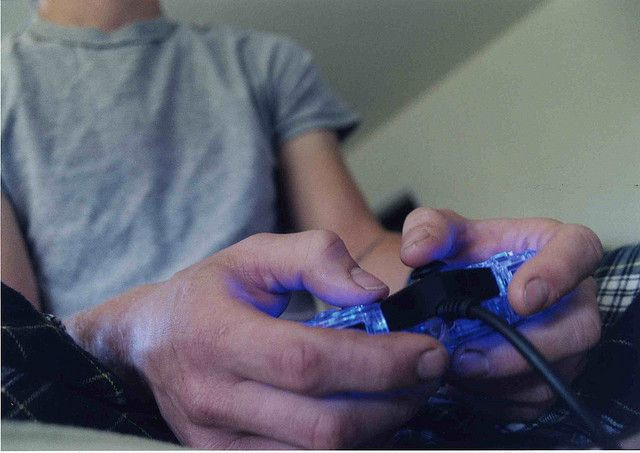Kids With Autism Play Video Games Twice As Much: Is This Cause For Concern?

Video games have long been a sore point between parents and kids, even if many parents spent large portions of their childhoods playing Pong in front of an Atari. But now, the entertainment form is available on almost every device at home, from consoles to iPhones, but its availability begs the question: how much gaming is too much?
While it's difficult enough to get the average kid to skip the video games and go play with friends, new research has found that kids with autism spectrum disorder (ASD) and attention deficit hyperactivity disorder (ADHD) — two disorders with impaired social interaction — spend nearly twice as much time playing video games each day, compared to kids without development disorders.
"Boys with ADHD and boys on the autism spectrum both have difficulties relating with peers," Dr. Andrew Adesman, chief of developmental and behavioral pediatrics at the Steven and Alexandra Cohen Children's Medical Center of New York, told HealthDay News.
Children with such disorders could be at a higher risk for video game related problems, including video game addiction. The researchers said that the results were comparable to previous studies "linking impulsivity and inattention with problematic video game use" because children with the disorder have difficulty with impulse control and response inhibition, MedPage Today reported.
Autism spectrum disorder ranges in severity, characterized by social impairments, communication difficulties, and restricted and repetitive patterns of behavior. It's estimated that one in 88 children will develop the disorder by the time they turn 8 years old, and boys are four times more likely to develop the disorder than girls.
Kids with autism play almost twice as much
The study involved surveying the parents of 141 boys, ages 8-18. Of them, 56 had some form of autism, 44 had ADHD, and 41 had normal development. Their parents were asked about their children's daily video game use, whether or not the kids had access to the games in their rooms, and if they had noticed any symptoms of problematic gaming.
They found that the boys with autism played video games for the most amount of time, at an average of 2.1 hours each day, while those with normal development played an average of 1.2 hours daily. Boys with ADHD played for an average of 1.7 hours each day, but this difference was not found to be statistically significant.
Problems with inattention among kids with the disorders was also strongly associated with problematic video game use. Further exacerbating the possibility of video game related problems, these kids were also more likely to have video game systems in their rooms.
Are video games the problem?
"When you push a button, it does the same thing every time," Dana Levy, an assistant professor in the department of child and adolescent psychiatry at the NYU Child Study Center, told HealthDay. She says that the consistency of video games is what appeals to kids with autism. On the other hand, kids with ADHD like video games because they are "very visual, very engaging, and exciting."
Levy says it's not the video games that are the issue though. She says the key to helping these kids avoid video games is for parents to develop a structure around playing them. "Like anything else, it's best in moderation," and limiting its use is harder when these kids have the game consoles in their bedroom.
According to the American Academy of Pediatrics, children are spending an average of seven hours in front of some form of entertainment media — including video games, television, and computers — each day. They recommend limiting kids to no more than one or two hours per day, and suggest that this time be spent on high-quality, educational entertainment.
The amount of time these kids spent playing video games was fine, Levy said. But she emphasized the importance of getting other things done first.
"If they're doing well in school and taking care of their responsibilities, then video games are fine," she said. "But if video games start to interfere in daily life, that's when they become a concern."
Source: Mazurek M, Engelhardt C. Video Game Use in Boys With Autism Spectrum Disorder, ADHD, or Typical Development. Pediatrics. 2013.



























